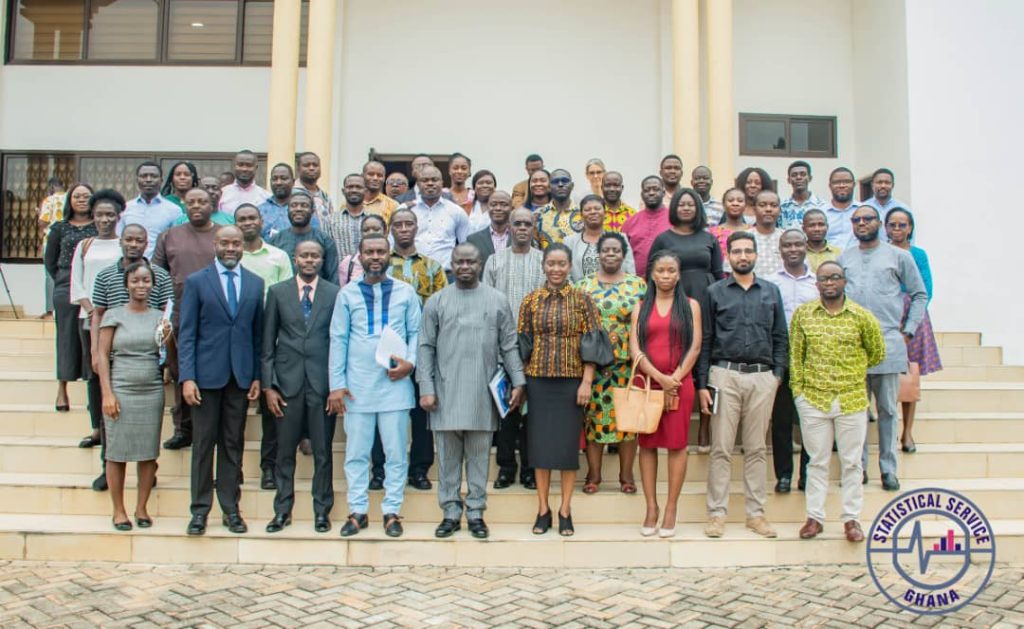By Francis Ntow/Sherrie Attitsogbi
Accra, Aug. 28, GNA – The government has been urged to utilise data from the Social Accounting Matrix (SAM) to guide tax, trade, and other economic policy decisions in Ghana.
This is because the database provides comprehensive information on all market transactions and transfers in productive activities in the country, especially factors of production (land, labour and capital), as well as household income and expenditure.
Professor Samuel Kobina Annim, the Government Statistician, speaking at the launch of the 2019 matrix in Accra, bemoaned the lack of use of the database, which had so far seen two editions of publication in 2007 and 2015.
The event was jointly organised by the Ghana a Statistical Service (GSS), Institute of Statistical, Social and Economic Research (ISSER) and the International Food Policy Research Institute (IFPRI).
The documentation of SAM received support from the United States Agency for International Development (USAID), and the Bill and Melinda Gates Foundation.

Prof Annim said despite its usefulness in guiding policy and development decision making: “As a country, we’ve not consciously and fully utillised the Social Accounting Matrix.”
He explained that the database was important in making economic decisions, including the removal and imposition of different taxes, which was critical in helping address issues of poverty, and ensuring equitable growth across the country.
He said: “It is my hope that anytime we think about issues around taxes, whether Value Added Tax (VAT) increase, import taxes, the first thing we’ll think about is how to use the Social Accounting Matrix to really tell us whether it’s going to plunge or take people out of poverty.”
He explained that the database was also a major statistical product that allowed for a detailed disaggregation of data to understand structure of the Ghanaian economy.
“So, if you don’t take up the statistics and continue to work with a GDP figure of that and inflation figure of that, you wouldn’t be taking the country anywhere. This is the statistical product that will tell us whether the economy is moving in this direction or in that other direction,” Prof Annim echoed.
Dr Kwaw Andam, a Programme Lead with IFPRI, reiterated the relevance of using SAM in various fields, including addressing issues of sustainable agricultural productivity, labour growth, and ensuring a more equitable growth.
He said that utilising data from SAM could also help guide decisions to prioritise investment in various sub-sectors, improve nutrition and strengthen human capacities for analysis.
Mr Seth Asante, the Ghana Country Representative of IFPRA, who presented the 2019 Social Accounting Matrix, said there was positive government savings in 2019.
He also noted that the crops sub-sector dominated Agriculture contribution to GDP, while manufacturing and mining were the largest GDP contributors to the industry sector in 2019, with wholesale and retail trade dominating the services sector GDP.
The Social Accounting Matrix incorporates data is from the Ghana Living Standards Survey (GLSS) and other macroeconomic indicators, including Gross Domestic Product (GDP).
GNA